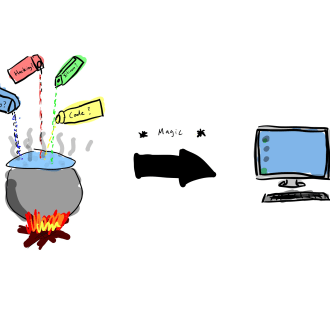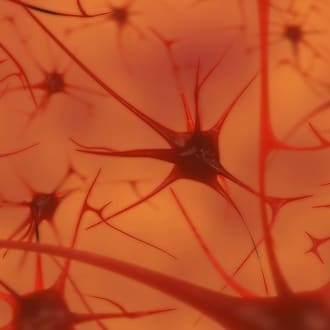
10 Best Articles on Computer Science
The most useful articles on computer science from around the web, curated by thought leaders and our community.
Refind focuses on timeless pieces and updates the list whenever new, must-read articles or videos are discovered.
Top 5 Computer Science Articles
At a glance: these are the articles that have been most read, shared, and saved on computer science by Refind users in 2024 so far.
Short Articles
Short on time? Check out these useful short articles on computer science—all under 10 minutes.
Surprise Computer Science Proof Stuns Mathematicians
For decades, mathematicians have been inching forward on a problem about which sets contain evenly spaced patterns of three numbers. Last month, two computer scientists blew past all of those results.
The Biggest Discoveries in Computer Science in 2022
Computer scientists this year learned how to transmit perfect secrets, why transformers seem so good at everything, and how to improve on decades-old algorithms (with a little help from AI).
Computer Science Proof Lifts Limits on Quantum Entanglement
Three computer scientists have solved the NLTS conjecture, proving that systems of entangled particles can remain difficult to analyze even away from extremes.
The Computer Scientist Who Finds Life Lessons in Board Games
In Shang-Hua Teng’s work, theoretical and practical questions have long been intertwined. Now he’s turning his focus to the impractical.
Researchers Achieve ‘Absurdly Fast’ Algorithm for Network Flow
Computer scientists can now solve a decades-old problem in practically the time it takes to write it down.
Long Articles
These are some of the most-read long-form articles on computer science.
The Internet from Rocks — A High Level Explanation of Computers and the Internet
Julian's Blog - The Internet from Rocks — A High Level Explanation of Computers and the Internet
Hard things in Computer Science
If you’ve more than a couple of years of experience in IT, you probably have stumbled upon the following quote: There are only two hard things in computer science: cache invalidation and naming things. — Phil Karlton Then, because it’s such a great quote, it evolved: There are two hard things in computer science: cache invalidation, naming things, and off-by-one errors.— Jeff Atwood (@codinghorror) August 31, 2014 However, I think that the initial quote is
Your brain does not process information and it is not a computer
Your brain does not process information, retrieve knowledge or store memories. In short: your brain is not a computer
Computer science has a racism problem: these researchers want to fix it
Black and Hispanic people face huge hurdles at technology companies and in computer-science education in the United States, with far-reaching consequences for science and all of society.
The Computer Scientist Who Can’t Stop Telling Stories
For pioneering computer scientist Donald Knuth, good coding is synonymous with beautiful expression.
What is Refind?
Every day Refind picks the most relevant links from around the web for you. Picking only a handful of links means focusing on what’s relevant and useful.
How does Refind curate?
It’s a mix of human and algorithmic curation, following a number of steps:
- We monitor 10k+ sources and 1k+ thought leaders on hundreds of topics—publications, blogs, news sites, newsletters, Substack, Medium, Twitter, etc.
- In addition, our users save links from around the web using our Save buttons and our extensions.
- Our algorithm processes 100k+ new links every day and uses external signals to find the most relevant ones, focusing on timeless pieces.
- Our community of active users gets the most relevant links every day, tailored to their interests. They provide feedback via implicit and explicit signals: open, read, listen, share, mark as read, read later, «More/less like this», etc.
- Our algorithm uses these internal signals to refine the selection.
- In addition, we have expert curators who manually curate niche topics.
The result: lists of the best and most useful articles on hundreds of topics.
How does Refind detect «timeless» pieces?
We focus on pieces with long shelf-lives—not news. We determine «timelessness» via a number of metrics, for example, the consumption pattern of links over time.
How many sources does Refind monitor?
We monitor 10k+ content sources on hundreds of topics—publications, blogs, news sites, newsletters, Substack, Medium, Twitter, etc.
Can I submit a link?
Indirectly, by using Refind and saving links from outside (e.g., via our extensions).
How can I report a problem?
When you’re logged-in, you can flag any link via the «More» (...) menu. You can also report problems via email to hello@refind.com
Who uses Refind?
450k+ smart people start their day with Refind. To learn something new. To get inspired. To move forward. Our apps have a 4.9/5 rating.
Is Refind free?
Yes, it’s free!
How can I sign up?
Head over to our homepage and sign up by email or with your Twitter or Google account.
Keep Learning
Get the big picture on your favorite topics.









